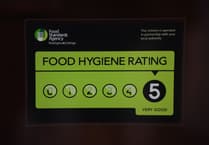Wera Hobhouse, MP for Bath, challenged Minister for Children, Families and Wellbeing, Claire Coutinho, over staff shortages in nurseries. The Bath MP raised the case of Midford Road Nursery and how a lack of staff had forced it to close which has resulted in parents scrambling around looking for childcare.
The problems with Midford Road Nursery and its closure arose from staff shortages which Wera Hobhouse MP put to the Minister. She asked what the Government’s advice would be to parents who cannot find childcare and ensure her constituents do not have to go through this again. The Minister ignored the question, instead choosing to say that the Government will choose to set out its plans for early years learning ‘as and when we can’.
Mrs Hobhouse has raised childcare issues previously and has made the point that it is an equality issue. If sufficient childcare or financial support for childcare is unavailable then it is often women who are forced out of the workplace. A survey by Pregnant Then Screwed has shown that 40% of women work fewer hours as a result of childcare costs.
The UK lags behind its counterparts on the continent for childcare support. A couple earning two-thirds of the average income, with two children aged two and three, can spend 29% of their salary on childcare. That compares with 9% in France and 1% in Germany. 1.7 million women would like to work more hours but were unable to do so because of problems with childcare. Another 1.3 million had turned down a job for the same reason. The Centre for Progressive Policy estimated that that could amount to up to £11bn in forgone earnings. The TUC estimates that the average price of a full-time childcare place in England has risen by £3,000 a year since 2013, to £14,226.
The Liberal Democrats have put forward a plan to alleviate the issues with childcare costs and availability. If in power, they would:
- Offer free, high-quality childcare for every child aged two to four and children aged between nine and 24 months where their parents or guardians are in work: 35 hours a week, 48 weeks a year.
- Increase the funding for these free hours to cover the actual cost of nursery provision.
- Invest £1 billion a year in Children’s Centres to support families and tackle inequalities in children’s health, development and life chances.
- Triple the Early Years Pupil Premium (to £1,000) to give extra help to disadvantaged children who are at risk of falling behind from the very beginning of their education.
- Require all Early Years settings to have a training programme for staff, with the majority of staff working with children to have a relevant Early Years qualification or be working towards one.
- In the long run, each Early Years setting should have at least one person qualified to graduate level.
Introduce ‘baby boxes’ in England, as advocated by the Royal College of Midwives, to provide babies and parents with essential items to help with health and development.
Wera Hobhouse, MP for Bath, commented:
“Childcare is ultimately an equality issue. The lack of support from the Government for working parents often means that women are forced to leave the workforce early, exacerbating gender inequalities in our society."
“Staffing shortages and the overwhelming cost of childcare in this country mean that for many it is simply unfeasible for both parents to work. This feeds into our productivity problem, not to mention unfairly forcing many out of work when they may feel they are not ready."
“The Government’s ignorance of the scale of the challenge facing parents has led to situations such as the one at Midford Road Nursery. Now my constituents are forced to scramble around for childcare which is already very hard to come by."
“The Government, when I confronted them with this, ignored the situation, opting to say we will deliver our plans ‘as and when we can’. As they sit on their hands, my constituents suffer. This is just another example of the Government’s negligence in running the country.”





Comments
This article has no comments yet. Be the first to leave a comment.